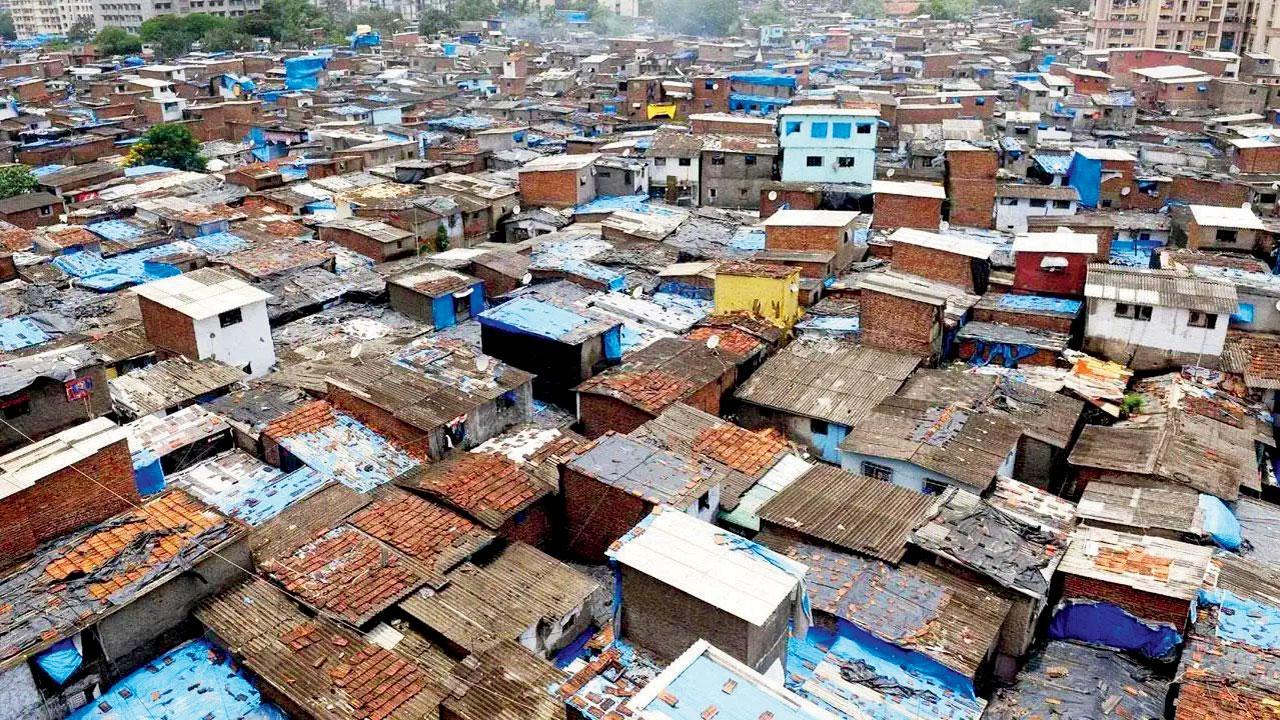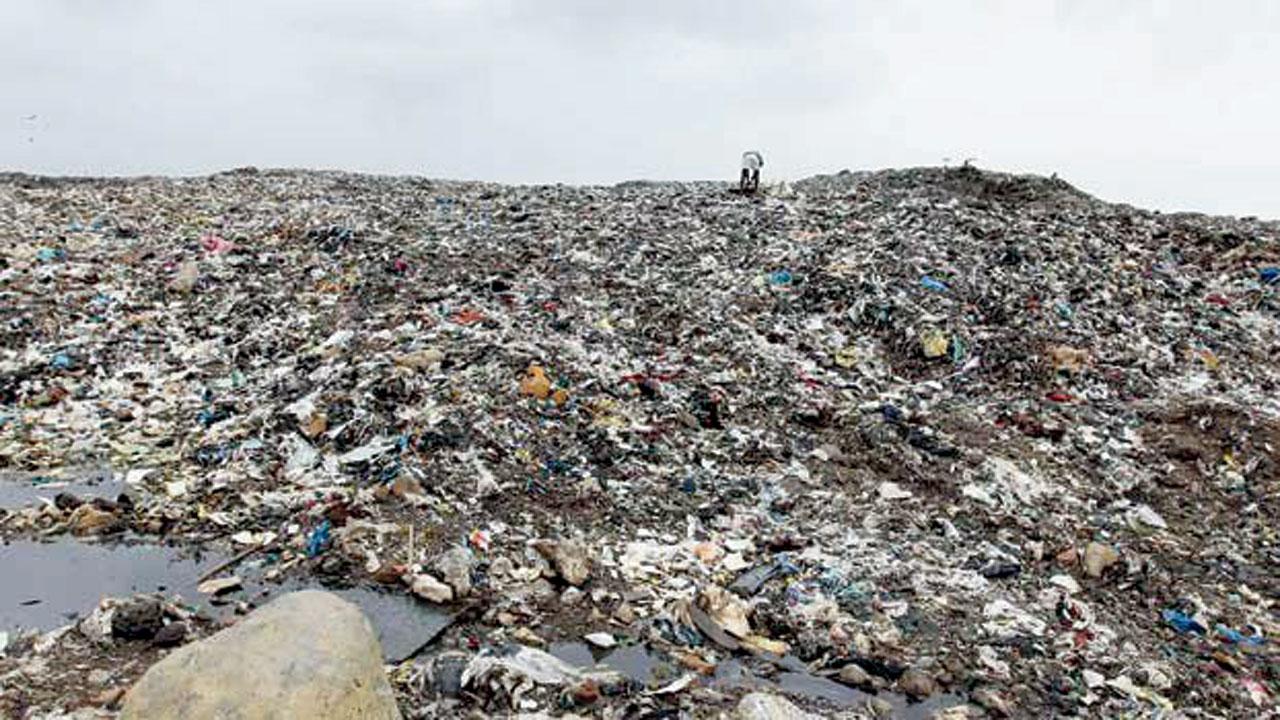From redevelopment uncertainty in Dharavi, to coalition complexities and historical legacies, the battle intensifies as Shewale and Desai clash

The fear of displacement due to redevelopment looms large over Dharavi residents. Pic/Sayed Sameer Abedi
Tension rises in the heart of Mumbai’s South Central Lok Sabha constituency as the voting day draws near. A political clash of titans ensues as two factions of Shiv Sena lock horns in a battle for dominance. The constituency is witnessing battle, primarily between two key candidates: Rahul Shewale of the Shiv Sena (Shinde faction) and Anil Desai of the Shiv Sena (UBT). This constituency, known for its vibrant and diverse electorate, has become a focal point due to its socio-economic significance and the high-profile nature of the candidates involved.
ADVERTISEMENT
The constituency, including areas like Dadar, Mahim, Sion, Dharavi, and nearby regions, has a significant Marathi-speaking population and a strong Dalit voter base. These demographics shape electoral outcomes and political strategies. Alliances between parties, both at state and national levels, greatly influence voter behavior and election results, showcasing the intricate nature of political engagement in the constituency.
Political history
From 1952 to 1989, the Mumbai South Central constituency saw shifts between Congress and CPI(M) dominance. In 1984, an independent candidate won, breaking the trend. Later, the Shiv Sena gained ground, becoming a major player. Today, this Sena stronghold faces a crucial test between Rahul Shewale and Anil Desai. Their battle will shape the constituency’s future.

Govandi and Deonar residents have been advocating for the relocation of dumping ground due to health concerns
Historically, Shiv Sena’s influence has been strong, alongside notable contributions from Congress leaders. The constituency’s dynamics reflect broader political changes in Maharashtra. In 2008, Mumbai South Central was created from parts of Mumbai South and Mumbai North Central. Eknath Gaikwad of Congress won in 2009, focusing on slum development. Shiv Sena’s Rahul Shewale, introduced in 2014, seeks his third term.
Vote share
In the 2014 Lok Sabha elections, Rahul Ramesh Shewale of the Shiv Sena (undivided) emerged victorious in this seat, securing 381,008 votes. Eknath M Gaikwad of the Congress came in second with 242,828 votes. In the subsequent 2019 elections, Shewale retained the seat for the Shiv Sena, garnering 424,913 votes and defeating Congress’s Eknath Gaikwad once again.
Key Issues
The constituency is a microcosm of Mumbai’s diversity, with a mix of issues ranging from infrastructure to housing and public health. Looking at region-wise issues, the constituency includes socio-economically diverse areas, encompassing both affluent neighbourhoods and large slum areas like Dharavi.
Anushakti Nagar
Many areas in Anushakti Nagar have old buildings. Residents have been seeking affordable housing projects to accommodate the growing population. While the area is relatively well-connected, there is a need for improvements in public transport services to reduce congestion and enhance connectivity.
Chembur
In Chembur, industrial activity in and around the area, including Govandi, Shivaji Nagar, and Deonar, contributes to high levels of air and water pollution, impacting the health of residents. Govandi and Deonar residents have been advocating for the relocation of the bio-medical waste treatment plant and the dumping ground due to health concerns. Heavy traffic, especially during peak hours, is a significant issue due to the presence of major roads and highways.
Dharavi
Dharavi, famous as one of Asia’s largest slums, requires comprehensive redevelopment to improve living conditions, sanitation, and housing. A redevelopment plan by the Adani Group aims to transform it into a modern, integrated township. However, the plan has faced strong opposition from residents concerned about potential displacement, loss of livelihoods, and lack of transparency in the process.
Sion Koliwada
The Sion Koliwada area is prone to flooding during the monsoon season due to inadequate drainage systems, necessitating infrastructure upgrades. Similar to other parts of Mumbai, there is a need for better housing solutions and redevelopment of old buildings. Reducing traffic congestion and improving public transport connectivity are essential to enhance the quality of life for residents.
Wadala
In Wadala, ongoing construction and development projects need to be managed efficiently to minimise disruption and enhance urban infrastructure. Public transport systems need improvements to cater to the growing population effectively. Waste management remains a challenge.
Mahim
Pollution in Mahim Creek and nearby coastal areas is a significant environmental concern that needs to be addressed, as residents have been complaining about sea pollution. Heavy traffic congestion, particularly around major intersections and commercial areas, is another key issue.
Voter Base
The Marathi-speaking population forms the backbone of the electorate, while significant numbers of north Indian, south Indian, and Muslim voters also play crucial roles.
The Contenders
Rahul Shewale, the current MP, represents Shiv Sena (Shinde faction) with a background in engineering and local politics. He focuses on infrastructure, sanitation, and public transport improvements. Anil Desai, from Shiv Sena (UBT faction), is a seasoned politician and Rajya Sabha member. His campaign stresses transparent governance and better civic amenities for lower and middle-income groups
Strengths
Shewale benefits from being the incumbent MP and his alignment with the influential Shinde faction. Desai’s experience and association with Uddhav garner support, along with his focus on transparent governance.
Assembly segments in South Central
The constituency encompasses a diverse range of assembly segments. Prior to the delimitation, the constituency covered a larger area. The restructuring aimed to create a balanced representation.
Anushakti Nagar
Sitting MLA: Nawab Malik, NCP - SP
Traditionally, a Shiv Sena stronghold, with a significant Marathi-speaking population. However, other parties like NCP and Congress also have a presence, especially among certain communities.
Chembur
Sitting MLA: Prakash Phaterpekar, Shiv Sena (UBT)
Chembur has historically seen a mix of political affiliations, with both Shiv Sena and Congress having influence. .
Dharavi
Sitting MLA: Varsha Eknath Gaikwad, Congress
Dharavi has been a stronghold of the Congress. However, the Sena and other regional parties also have a presence.
Sion Koliwada
Sitting MLA: Captain Tamil Selvan, BJP
Shiv Sena has traditionally held sway here, leveraging its grassroots presence and focus on Marathi identity. However, other parties have made inroads in recent years.
Wadala
Sitting MLA: Kalidas Nilkanth Kolambkar, BJP
Wadala has seen competition between Shiv Sena and BJP, with both parties vying for influence.
Mahim
Sitting MLA: Sada Sarvankar, Shiv Sena
Shiv Sena has traditionally dominated Mahim.
Gender-wise breakdown
Total Voters 18,00,000
Female Approximately 850,000
Male Approximately 950,000
Community-wise breakdown (estimated)
Marathi-speaking Population
40-45% of the electorate
Number of voters: 720,000 - 810,000 voters
North Indian Communities
20-25% of the electorate
Number of voters: 360,000 - 450,000 voters
South Indian Communities
15-20% of the electorate
Number of voters: 270,000 - 360,000 voters
Muslim Community
Percentage: Approximately 10-15% of the electorate
Number of voters: 180,000 - 270,000 voters
Christian and Parsi Communities
5-10% of the electorate
Number of voters: 90,000 - 180,000 voters
*Approximate percentage
Voices
Faisal Khan, a social activist and resident of Anushakti Nagar
“Redevelopment projects like those in Dharavi are essential for urban renewal, but the fear of displacement due to SRA projects looms large over the residents. People need assurance and transparency to feel secure in their homes.”
Irfan Machhiwala, a resident of Mahim
“The Dharavi-Sion Link Road scrap market is causing severe plastic pollution. They burn plastic and wires, leading to significant air pollution near Mori Road and Raheja Hospital. This has even led to fires in the area.”
Shobana Kamat, a resident of Shivaji Park
“Shivaji Park faces several key issues. We have been witnessing increasing traffic congestion, lack of adequate parking, and rising pollution. Moreover, preservation of green spaces and heritage structures amidst development remains a critical concern.”
 Subscribe today by clicking the link and stay updated with the latest news!" Click here!
Subscribe today by clicking the link and stay updated with the latest news!" Click here!







